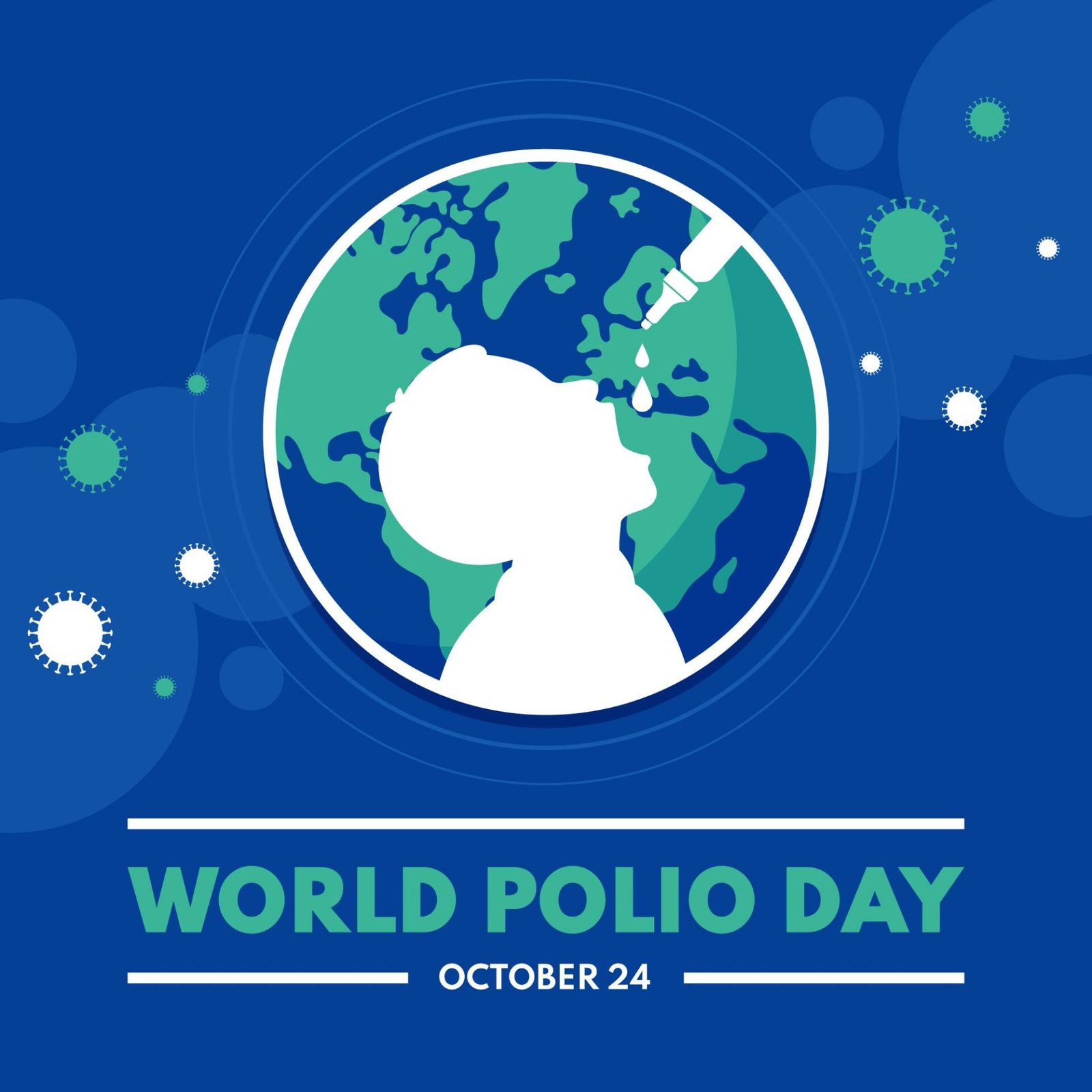Introduction
Polio is a disease that has made many people very sick over the years, it is a disease that has been around for a long time, causing paralysis and death primarily among young children. But in the sad story of this illness, there’s a spark of hope: World Polio Day, commemorated every 24th of October. It is a great discovery in the field of Biology. This day reminds us that we’re all working together to wipe out this terrible virus from the Earth. In this article, we’ll learn about this illness in the past, the smart people who made its vaccine, and why this vaccine is so incredibly important in saving lives.
Understanding Polio: A Historical Perspective:
To really understand why fighting this demon is so important, let’s look back in time. Polio has been around for a very long time, even in ancient civilizations, causing a lot of pain and sadness. But it wasn’t until the 1900s that scientists like Jonas Salk and Albert Sabin decided to learn all they could about this mysterious disease. In the early 20th century, the world was in desperate need of a solution. That’s when dedicated scientists like Jonas Salk and Albert Sabin stepped in. They spent years studying this virus to understand how it spread and affected the human body.
Causative agent
The causative agent of polio, also known as poliomyelitis, is the poliovirus. This virus is a member of the Picornaviridae family and is classified into three serotypes: P1, P2, and P3. Polio primarily spreads through the fecal-oral route and can lead to paralysis, making vaccination crucial in its prevention.
Mode Of Infection
Polio, caused by a virus, usually spreads when someone eats or drinks something contaminated with the poop of an infected person. Sometimes, it can also pass from one person to another through their spit or breath. The virus can cause paralysis in some people. Importantly, not everyone gets sick from it, which makes it hard to stop. But getting a vaccine is the best way to protect yourself and others from polio.
The Jonas Salk and Sabin Vaccines: Pioneering Achievements
In 1955, Jonas Salk, an American virologist, introduced the world to the first effective polio vaccine. This inactivated poliovirus vaccine (IPV) injected a killed virus into the body, triggering an immune response without causing the disease. Following this monumental achievement, Albert Sabin, a fellow scientist, developed an oral polio vaccine (OPV) using weakened live viruses. These vaccines were game changers, offering a way to immunize millions of children swiftly.
The Significance of Polio Vaccines
The advent of polio vaccines marked a turning point in medical history. Thanks to these innovative solutions, millions of children were spared from the agony of paralysis and death. The vaccines not only protected individuals but also contributed to the concept of herd immunity, reducing the overall prevalence of the virus within communities. This collective immunity was pivotal in curbing disease outbreaks and driving the disease closer to extinction.
The Role of Global Initiatives
The fight against polio transcends national borders. International bodies such as the World Health Organization (WHO), UNICEF, the Centers for Disease Control and Prevention (CDC), and the Rotary International joined forces to create the Global Polio Eradication Initiative (GPEI) in 1988. Through mass vaccination campaigns, rigorous surveillance, and community engagement, these organizations relentlessly pursued the vision of a polio-free world.
Challenges and Triumphs: The Journey Towards Eradication
While remarkable progress has been made, challenges abound. Vaccine hesitancy, political instability, and inaccessible regions pose formidable obstacles. However, dedicated health workers, volunteers, and scientists continue to persevere. Nations like India and Nigeria, once polio-endemic, have now celebrated years of being polio-free, showcasing the potential of determined efforts and global collaboration.
Looking Forward: A Polio-Free Future
As we commemorate World Polio Day, we must acknowledge the strides made in the fight against polio. The resilience of communities, the brilliance of scientists, and the unwavering dedication of healthcare workers have brought us closer than ever to a polio-free future. By understanding the history of this disease, valuing the significance of vaccines, and supporting global initiatives, we can collectively ensure that no child suffers the devastating consequences of this disease. Together, we stand on the precipice of one of humanity’s greatest achievements: the total eradication of polio.

It’s good informative but requires some additional comments on mode of infection, causative agent etc.
Okay.. I’ll update the post..
Check now ..
Try to mention mode of action, causative agents etc. of poliovirus.